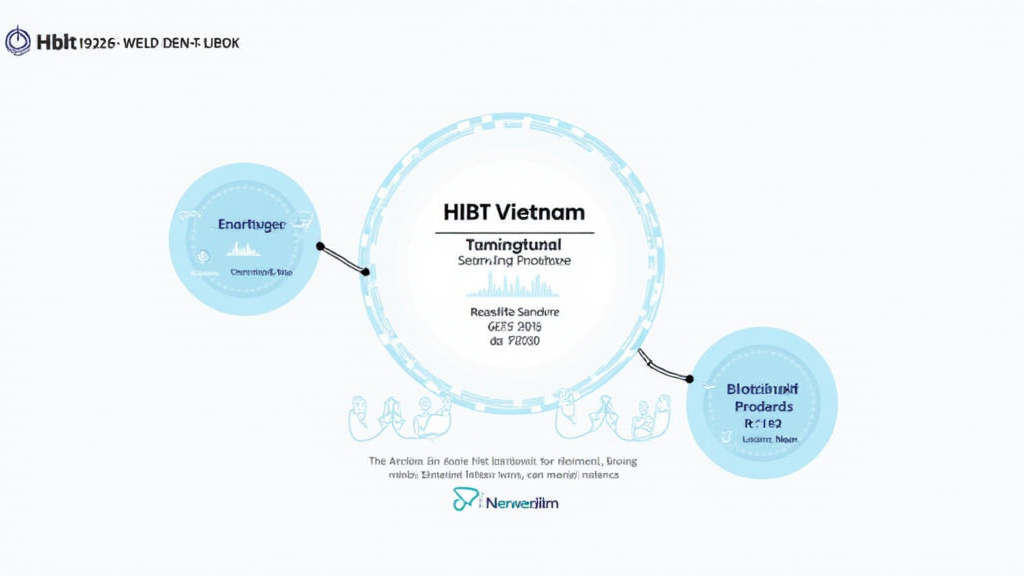Understanding the HIBT Vietnam Dispute Resolution Process
As the adoption of cryptocurrencies continues to surge, the need for effective dispute resolution mechanisms has never been more crucial. In Vietnam, where the digital asset market is expanding rapidly, understanding the HIBT (Harmonized International Blockchain Technology) Vietnam dispute resolution process can significantly impact how users manage transactions and address conflicts. With an estimated 4.1 billion USD lost to DeFi hacks in 2024, it’s essential to grasp the methods available for resolving disputes effectively.
Why Dispute Resolution Matters in Cryptocurrency
Cryptocurrencies operate in a decentralized environment where traditional mechanisms of trust do not apply. This absence highlights the necessity for reliable dispute resolution processes. Users may experience various issues ranging from transaction errors to fraud. Here’s the catch: without an established process, resolving such disputes can become a daunting task.
- Decentralization leads to unique challenges for trust and reliability.
- Users may seek to recover lost funds due to disputes over smart contracts.
- HIBT provides a framework to address these challenges specifically within Vietnam.
Overview of HIBT Vietnam Dispute Resolution Process
The HIBT Vietnam dispute resolution process is designed to manage conflicts efficiently while ensuring confidence among users participating in the crypto space. This system serves as a backbone for promoting fair practices, reflecting the growing demands of the Vietnamese market.

Key Features of the HIBT Process
- Arbitration and Mediation: Central to the HIBT process is a set of arbitration mechanisms that allow parties to resolve disputes without court intervention.
- Blockchain Transparency: Leveraging blockchain technology ensures that all transactions are immutable and open to scrutiny.
- Accessibility: The dispute resolution services are accessible to all parties involved, ensuring no user is left without support.
The Role of Smart Contracts
Smart contracts are self-executing contracts with the terms of the agreement directly written into code. However, like any software, they can have bugs or vulnerabilities. Here’s the catch: disputes often arise from how these contracts are interpreted. In this context, the HIBT dispute resolution process plays a crucial role in:
- Providing clear guidelines on how disputes over smart contract execution are handled.
- Enabling parties to appeal decisions, thus fostering a fair environment.
Implementing Dispute Resolution in Vietnam’s Crypto Market
The growing number of cryptocurrency users in Vietnam indicates an increasing need for efficient dispute resolution systems. As of 2023, user growth in Vietnam’s cryptocurrency sector reached an impressive 300% year-on-year. With this growth, understanding the local dispute resolution mechanisms is imperative.
Key Considerations for Vietnamese Users
- Understanding local laws and regulations related to cryptocurrency.
- Familiarity with the HIBT process could strengthen their position in case of disputes.
- Engagement with formal dispute resolution services can lead to quicker resolutions.
Case Study: A Dispute Resolution Scenario
Imagine a user who has faced a transaction failure due to a smart contract bug. Instead of facing prolonged issues, the user can initiate the HIBT dispute resolution process. Steps include:
- **Filing a claim via the HIBT platform.** Documentation of the incident is crucial.
- **Mediation follows to clarify intentions** between the two parties, leading to a possible resolution.
- **If unresolved, arbitration will take place,** during which an independent third party evaluates the situation.
This streamlined approach can provide parties with clarity and resolution, showcasing the effectiveness of the HIBT system.
Future of Dispute Resolution in Vietnam
The future of dispute resolution in Vietnam’s cryptocurrency ecosystem appears promising. With continuous advancements in blockchain and regulations being updated regularly, we can expect integration of technology-driven solutions that enhance the HIBT process.
Proposed Innovations
- AI Integration: Future mechanisms may utilize AI to predict dispute outcomes based on historical data.
- Extended Support Services: Offering services in multiple languages to cater to a broader audience.
- Enhanced User Education: Workshops and resources can improve user understanding of the HIBT process.
Conclusion
The HIBT Vietnam dispute resolution process is not only essential for crypto users but also a cornerstone for sustaining the growth of the digital asset market in Vietnam. By understanding this process, users can navigate potential issues effectively and protect their investments. It’s imperative that participants in this burgeoning market remain informed about effective dispute resolution practices.
As we see this landscape evolve, we anticipate further improvements that will bolster user trust and strengthen the overall crypto community. Engage with the local HIBT services to ensure you are well-equipped to handle any disputes that may arise in the future.
For more information about cryptocurrencies and effective dispute resolution methods, visit bobscoinsonline.
Author: Dr. Thanh Nguyen
Dr. Thanh Nguyen is a recognized expert in blockchain technology and has authored over 20 papers on related financial technologies. He has also led audit projects for several prominent cryptocurrency initiatives in Southeast Asia.



